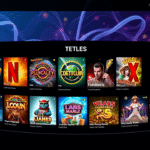As artificial intelligence becomes central to iGaming platforms, a growing use case is player protection. From spotting compulsive behavior in real time to flagging underage accounts, AI promises a smarter, faster, and more responsive compliance ecosystem. But critics argue these systems may go too far—mislabeling users, enabling data overreach, or even creating biased “risk profiles.” This article explores the state of AI-driven responsible gambling, key players leading the charge, regulatory reactions, and whether this represents genuine progress or a new layer of surveillance in the name of safety.
🎰 The Rise of AI in Gambling: More Than Just Engagement
AI has long powered recommendation engines, live odds adjustment, and CRM targeting in the gambling industry. But 2024–2025 saw a noticeable pivot:
From maximizing player value… to protecting player well-being.
This shift isn’t altruism—it’s driven by:
- Regulatory pressure (UK, Netherlands, Germany)
- Market backlash over irresponsible practices
- The need to maintain licensing and brand reputation
- Rising concern around problem gambling and addiction
Enter: AI-driven Player Protection (AIPP) tools.
🧠 How AIPP Systems Work
These systems aim to detect, flag, and act—in real time or near-real time—based on behavioral signals.
Key Data Points Analyzed:
- Deposit frequency & amounts
- Session duration & escalation
- Loss-chasing behavior
- Game-switching patterns
- Late-night or early-morning play
- Failed deposit attempts
- Aggressive bet sizing
- Chat or customer service language
Typical Process:
- Behavioral Monitoring – AI tracks player behavior patterns.
- Risk Profiling – Players are categorized (e.g., low, moderate, high-risk).
- Trigger Events – Certain behaviors exceed thresholds.
- Automated Actions – Messages, timeouts, deposit limits, or even account freezes.
- Human Review (in high-risk cases).
🛡️ Tools in Action: Global Examples
🇬🇧 GamBan & GamStop (UKGC)
- Third-party tools used in tandem with operator-level AI monitoring.
- Some operators now deploy predictive analytics to proactively offer self-exclusion before harm occurs.
🇳🇱 Cruks (Netherlands)
- National exclusion database plugged into AI-driven alert systems.
- Operators are fined if they fail to act on detected behavioral flags.
🇩🇪 OASIS (Germany)
- Centralized self-exclusion system now integrated with machine-learning behavioral insights.
🌍 BetBuddy (acquired by Playtech)
- Uses AI models trained on real player data to predict harm and flag risky users.
- Adopted across multiple EU-regulated platforms.
🚨 Where AI Excels in Player Protection
✅ Real-Time Intervention
AI can detect risky escalation within a single session and trigger cooldowns or nudges instantly.
✅ Scale and Consistency
Unlike human review teams, AI can monitor millions of sessions 24/7, without fatigue or bias.
✅ Personalized Protection
Just as AI personalizes games, it can also personalize protection:
“Player X is a high-stakes, low-frequency risk,” vs.
“Player Y shows binge-session spikes.”
✅ Fraud and Underage Use Detection
AI can cross-analyze unusual device, payment, or behavioral signals to flag account misuse or underage access.
⚠️ But Is It Overreach?
Here’s where the debate gets complicated. AI-driven protection, if unregulated or opaque, risks:
❌ False Positives
A player on vacation might binge-play for a weekend—doesn’t make them an addict.
AI may misinterpret context.
❌ Bias in Models
AI is trained on data. If that data is flawed or biased, certain demographics may be unfairly flagged.
❌ Privacy Intrusion
Deep behavioral tracking = deep data collection.
Is it ethical to monitor player behavior at this microscopic level?
❌ Chilling Effect
Some players may feel policed or over-monitored, damaging their sense of agency and enjoyment.
“We want to protect, not parent,” says one C-level executive at a Malta-based operator. “But where’s the line?”
🎙️ Industry Voices: Split Opinions
🟢 Supporters Say:
- “It’s essential. Without AI, player protection is reactive and slow.”
— Compliance Officer, Flutter - “Regulators won’t trust operators without these tools.”
— Responsible Gambling Consultant, UKGC
🔴 Critics Say:
- “It’s a PR shield—these models are black boxes.”
— Gambling Reform Advocate - “We’ve seen players auto-flagged and banned with zero transparency.”
— Community Manager, High Roller Forum
🔐 Regulatory Perspective
✅ UKGC (UK)
- Advocates for proactive tools but warns against over-reliance.
- Recommends “explainable AI” in compliance use.
✅ MGA (Malta)
- Encouraging innovation but signals future audits of player protection models.
✅ Sweden’s Spelinspektionen
- Mandates player risk scoring transparency.
Emerging trend: Regulators are demanding that operators prove the fairness and explainability of AI-driven bans or interventions.
💼 Who’s Leading in AIPP Tech?
1. Playtech (BetBuddy)
- Flagship product in behavioral risk profiling
- Used across multiple white-label brands
2. Neccton (mentor)
- Real-time monitoring + CRM flagging
- Focus on “ethical nudges” before harm
3. Mindway AI
- Brain science + AI hybrid
- Collaborates with universities for model integrity
4. Future Anthem
- Analyzes game-specific behavioral risk
- Focus on slot volatility and binge detection
🔮 What’s Next: AI 2.0 for Player Protection
🎯 Emotion AI
- Reading emotional distress via mouse movement, delays, or rage-clicking.
🧬 Behavioral DNA
- Creating “digital player fingerprints” for early detection of addiction patterns.
🤖 Explainable AI (XAI)
- Transparency frameworks to explain why a player was flagged.
⚖️ Consent-Based AI
- Allowing players to opt-in or out of predictive monitoring.
🌐 Industry-Wide Integration
- Global platforms syncing with AI systems in national exclusion registries.
🎯 The Verdict: Progress or Paternalism?
AI-driven player protection is no longer optional—it’s becoming industry standard. But the way it’s implemented will determine whether it’s:
- A lifesaving safeguard for at-risk users
- Or an overreaching surveillance tool that kills trust
Operators that balance ethics, transparency, and tech will win both market trust and regulatory goodwill.
The future of responsible gambling is smart—but it must also be fair, explainable, and player-first.











